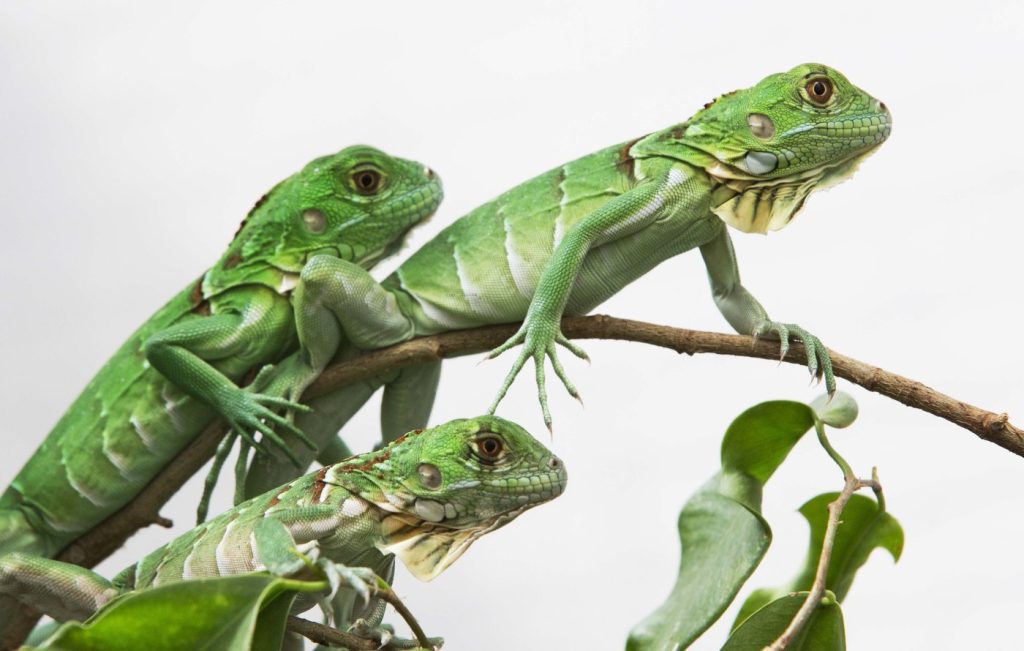PINGTUNG, Taiwan (AP) – Taiwan's government has announced plans to cull up to 120,000 green iguanas in response to the significant damage these reptiles are causing to the island's agricultural sector. With an estimated population of around 200,000 iguanas residing in southern and central Taiwan, the situation has become alarming for farmers in these regions heavily reliant on agriculture, according to Chiu Kuo-hao from the Forestry and Nature Conservation Agency.
In the previous year alone, specially recruited hunting teams managed to eliminate approximately 70,000 iguanas, offering bounties that reached up to $15 per animal. Local governments are now urging community members to assist in identifying iguana nests, advising the use of fishing spears as a particularly humane method for culling the population.
Lee Chi-ya from the agricultural department in Pingtung County noted that many iguanas were initially adopted as pets, with owners unaware of their potential size and lifespan. Once these pets grew larger, some owners chose to release them into the wild, allowing iguanas to thrive in Taiwan's environment. This unintended introduction led to rapid reproduction, compelling the government to implement culling as a means of restoring ecological balance.
Green iguanas, which are indigenous to Central America and the Caribbean, currently lack natural predators in Taiwan. They have successfully established themselves in challenging habitats, primarily in forests and the outskirts of populated areas. Males can reach lengths of 6.6 feet and weigh around 11 pounds, while females are capable of laying up to 80 eggs at once. Although green iguanas are not considered aggressive creatures, their sharp tails, jaws, and razor-like teeth make them formidable animals.
Despite their popularity as pets, green iguanas are challenging to maintain in captivity, with a high mortality rate occurring within the first year of life. In light of the rising iguana population and the difficulty in managing them, the Reptile Conservation Association of Taiwan, represented by Hsu Wei-chieh, has pledged to educate local farmers on safe practices to protect their crops and co-exist with the iguanas humanely.
“We’re here to help see that this project is carried out smoothly,” Hsu stated, emphasizing the need for effective strategies that balance agricultural interests and wildlife preservation. Tsai Po-wen, a vegetable farmer in Pingtung, has begun to perceive the benefits of the training provided by conservation efforts. “We used to attack them, but it wasn’t any use. Now we’re learning more effective, safer methods,” Tsai commented, indicating a shift in tactics towards more sustainable approaches for dealing with the invasive species.
The situation surrounding the green iguana population in Taiwan is critical, necessitating a comprehensive response that weighs both the agricultural damage inflicted by the species and the ethical treatment of the animals. The government’s culling plan, coupled with community education initiatives, reflects a multifaceted approach to managing an ecological imbalance and protecting local agriculture.










